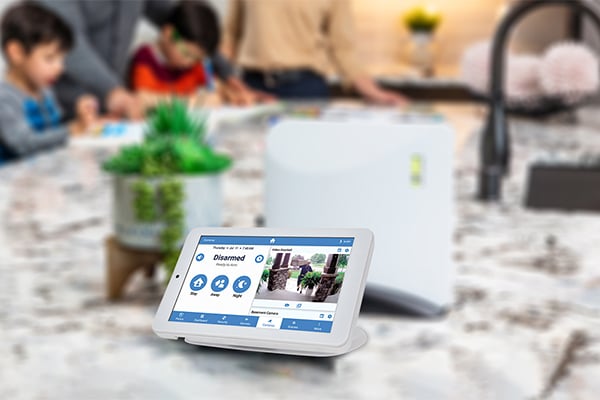Why Your Security System Should Use Cellular Communication

Your home security system has three options to communicate with your monitoring service provider, such as EMC Security.
Those options are
In this post we’ll examine the reasons we believe a cellular connection is a great choice for most homes today, especially considering most households don’t have an operational landline as more and more people opt for cell phones.
But first, let’s discuss the differences between each connection:
Landline
Connecting your home security system through your phone line is the most cost-effective option as there’s no equipment to buy and no charge to transmit the alarm other than the monthly monitoring rate. However, if your phone line is cut, there’s no way for the alarm to communicate with the service provider’s central station. In addition, if you opt for the landline connection, there is no way to access the security system using a smartphone, which is a feature most customers are looking for.
Wi-Fi
This type of connection communicates with the monitoring service via an internet connection. The benefit of this type of connection is that there is no transmission cost — as long as you have an internet connection, the service provider will only need to put a module in to allow it to communicate over the internet. There is a cost for the module, but it will also give you the ability to control the security system through a smartphone. It’s important to note that this type of connection relies on your IP connection, so if your internet goes down, the system won’t be able to communicate.
Cellular
A cellular connection communicates with the monitoring service provider via cellular towers and is considered the most secure because there are no lines that can be cut to prevent the system from communicating with the provider. There are equipment costs, however, as you’ll need to purchase a cellular communicator, and the cell carriers will charge a small monthly transmission cost for the cellular communicator. Because the technology will advance over time, you will need to upgrade your cellular communicator from time to time.
Now that you know the difference between each of the connections, let’s discuss three reasons a cellular connection is the best choice for most home:
It’s the Most Secure: Both landline and Wi-Fi communication are susceptible to disruption: landlines can be cut, and Wi-Fi relies on an active internet connection. A cellular connection communicates through cellular towers and is less vulnerable.
Convenient: A cellular connection can be controlled from anywhere using a smartphone, tablet or computer. Perks include real-time alerts and monitoring.
More Control: A cellular connection offers more interactive services, such as
If you’re ready to purchase home security but aren’t sure which system is best for you, download our Free Guide to Buying Home Security to learn more about the available options.
